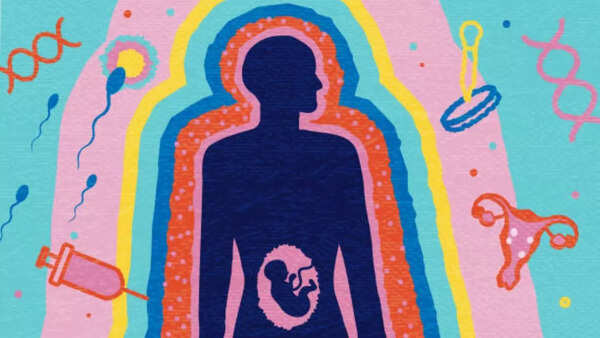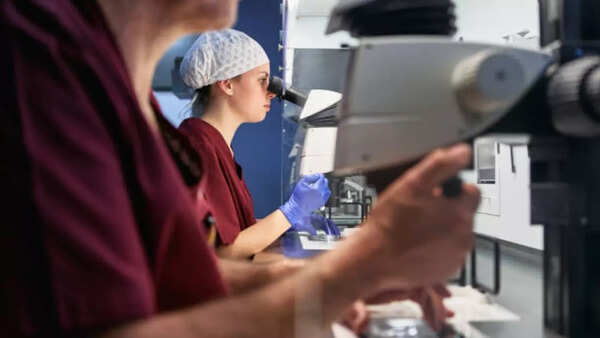ARTICLE AD BOX

Image credits: Getty Images
Being able to carry your child and bring them into the world is a special feeling that many describe as life-changing. However, many women are not able to experience this event due to physical and health reasons.
The technology of In-vitro fertilization, also known as "test-tube babies" was invented in the late 1970s and 1970s to help women struggling to conceive. The first IVF baby was born in 1978 and was named Louise Brown.Until recently, IVF involved the fertilization of an egg with a sperm in a lab and then transferring the resulting embryo into the woman's uterus. But now, a new IVF technology allows parents to decide the genetic makeup of their child.Yes, Nucleus Genomics, a US-based DNA testing and analysis company has announced the world's first genetic optimization software that "helps parents pursuing IVF see and understand the complete genetic profile of each of their embryos."
Why does this technology matter?

Image credits: Getty Images
The technology can be really impactful as according to the company it can analyse the genetic makeup of embryos to test for up to 900 conditions including diabetes, cancer and heart disease.
Thus, by choosing embryos with the lowest risk profiles, parents can ensure the longevity of their child's life and ensure that they are healthy."Nucleus Embryo is the first-ever genetic optimization software that helps parents give their children the best possible start in life—long before they're even born," said the company on X.
How will the process take place?

Image credits: Getty Images
If you are prospective parents interested in getting their embryos analysed then you can upload up to 20 embryo DNA files from your IVF clinics for over 900 genetic analyses.After the analysis is completed, the company will provide the clients with a detailed report showing the results."Sort, compare, and choose your embryos based on what matters most to you," said the company.The analyses not only include health conditions but also cognitive ability, mental health risks such as depression and anxiety disorders, BMI and even IQ-related markers. Additionally, demo pictures shared by the company also show that the parents will be able to decide the child's eye and hair colour as well.
Should you do it?

Image credits: Getty Images
The practice raises ethical concerns about choosing embryos based on probabilities but Kian Sadeghi, the 25-year-old founder of the company said to the Wall Street Journal that he finds no distinction between people using DNA tests to understand their own risks and those screening embryos to select one that is likely to have a longer life."It is the same underlying motivation," Sadeghi said. "It is about living a longer, healthier life.""The longevity movement is about taking medicine back and putting it in the people's hands," he added. "Why would that not apply now to the most intimate, personal, emotional, sensitive decision you will make? Picking your baby."



.png)
.png)
.png)
















 12 hours ago
3
12 hours ago
3









 English (US) ·
English (US) ·